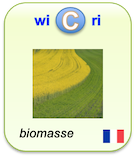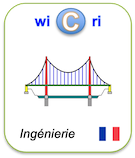Studies in Down's syndrome
Identifieur interne : 001619 ( Istex/Corpus ); précédent : 001618; suivant : 001620Studies in Down's syndrome
Auteurs : Ch. Rittner ; E. SchwingerSource :
- Clinical Genetics [ 0009-9163 ] ; 1973-09.
English descriptors
- KwdEn :
- Antigen carriers, Association studies, Auish, Auish antigen, Control group, Control groups, Different subsamples, Differential viability, Environmental factors, Enzyme groups, Handicapped patients, Haptoglobin distributions, Highest incidence, Lower rhine area, Negative results, Normal controls, Older patients, Patients group, Phenotype, Positive individuals, Possible association, Possible associations, Previous paper, Retarded patients, Rittner, Second group, Second series, Significant result, Statistical significance, Syndrome, Syndrome patients.
- Teeft :
- Antigen carriers, Association studies, Auish, Auish antigen, Control group, Control groups, Different subsamples, Differential viability, Environmental factors, Enzyme groups, Handicapped patients, Haptoglobin distributions, Highest incidence, Lower rhine area, Negative results, Normal controls, Older patients, Patients group, Phenotype, Positive individuals, Possible association, Possible associations, Previous paper, Retarded patients, Rittner, Second group, Second series, Significant result, Statistical significance, Syndrome, Syndrome patients.
Abstract
Two series of 88 and 53 patients with Down's syndrome and 91 other mentally retarded patients were investigated for various blood, serum and enzyme groups. No association of trisomy 21 and the following systems and factors was found: ABO, Rh(D), MNSs, K, P, Fy(a, b), Jk(a, b), Gm, (1,2), InV(1), Ag (x), Lp(a), Tf, C3, acP, PGM1 and GPT. None of these markers was associated with age or the presence or absence of the Au/SH antigen in Down's syndrome or other mentally handicapped patients. Gm(+1) individuals were more frequent among Down and other mentally retarded patients than in normal controls. A decrease of Hp2 individuals with age was found in the first, but not in the second group of Down patients. A possible association of Au/SH positive and tic 1‐1 individuals was found in the first. but not confirmed in the second series of patients with Down's syndrome. The control group of other mentally retarded patients exhibited a helerogeneity according to sex and age in the distribution of Gc phenotypes.
Url:
DOI: 10.1111/j.1399-0004.1973.tb01166.x
Links to Exploration step
ISTEX:2B45C6A1AE72030820CD6AE950EDD4588D94E461Le document en format XML
<record><TEI wicri:istexFullTextTei="biblStruct"><teiHeader><fileDesc><titleStmt><title xml:lang="en">Studies in Down's syndrome</title><author><name sortKey="Rittner, Ch" sort="Rittner, Ch" uniqKey="Rittner C" first="Ch." last="Rittner">Ch. Rittner</name><affiliation><mods:affiliation>Institute of Forensic Medicine, University of Bonn, W. Germany</mods:affiliation></affiliation><affiliation><mods:affiliation>Correspondence address: Institute of Forensic Medicine University of Bonn, W. Germany</mods:affiliation></affiliation></author><author><name sortKey="Schwinger, E" sort="Schwinger, E" uniqKey="Schwinger E" first="E." last="Schwinger">E. Schwinger</name><affiliation><mods:affiliation>Institute of Forensic Medicine, University of Bonn, W. Germany</mods:affiliation></affiliation></author></titleStmt><publicationStmt><idno type="wicri:source">ISTEX</idno><idno type="RBID">ISTEX:2B45C6A1AE72030820CD6AE950EDD4588D94E461</idno><date when="1973" year="1973">1973</date><idno type="doi">10.1111/j.1399-0004.1973.tb01166.x</idno><idno type="url">https://api.istex.fr/document/2B45C6A1AE72030820CD6AE950EDD4588D94E461/fulltext/pdf</idno><idno type="wicri:Area/Istex/Corpus">001619</idno><idno type="wicri:explorRef" wicri:stream="Istex" wicri:step="Corpus" wicri:corpus="ISTEX">001619</idno></publicationStmt><sourceDesc><biblStruct><analytic><title level="a" type="main">Studies in Down's syndrome</title><author><name sortKey="Rittner, Ch" sort="Rittner, Ch" uniqKey="Rittner C" first="Ch." last="Rittner">Ch. Rittner</name><affiliation><mods:affiliation>Institute of Forensic Medicine, University of Bonn, W. Germany</mods:affiliation></affiliation><affiliation><mods:affiliation>Correspondence address: Institute of Forensic Medicine University of Bonn, W. Germany</mods:affiliation></affiliation></author><author><name sortKey="Schwinger, E" sort="Schwinger, E" uniqKey="Schwinger E" first="E." last="Schwinger">E. Schwinger</name><affiliation><mods:affiliation>Institute of Forensic Medicine, University of Bonn, W. Germany</mods:affiliation></affiliation></author></analytic><monogr></monogr><series><title level="j" type="main">Clinical Genetics</title><title level="j" type="alt">CLINICAL GENETICS</title><idno type="ISSN">0009-9163</idno><idno type="eISSN">1399-0004</idno><imprint><biblScope unit="vol">4</biblScope><biblScope unit="issue">5</biblScope><biblScope unit="page" from="398">398</biblScope><biblScope unit="page" to="406">406</biblScope><biblScope unit="page-count">9</biblScope><publisher>Blackwell Publishing Ltd</publisher><pubPlace>Oxford, UK</pubPlace><date type="published" when="1973-09">1973-09</date></imprint><idno type="ISSN">0009-9163</idno></series></biblStruct></sourceDesc><seriesStmt><idno type="ISSN">0009-9163</idno></seriesStmt></fileDesc><profileDesc><textClass><keywords scheme="KwdEn" xml:lang="en"><term>Antigen carriers</term><term>Association studies</term><term>Auish</term><term>Auish antigen</term><term>Control group</term><term>Control groups</term><term>Different subsamples</term><term>Differential viability</term><term>Environmental factors</term><term>Enzyme groups</term><term>Handicapped patients</term><term>Haptoglobin distributions</term><term>Highest incidence</term><term>Lower rhine area</term><term>Negative results</term><term>Normal controls</term><term>Older patients</term><term>Patients group</term><term>Phenotype</term><term>Positive individuals</term><term>Possible association</term><term>Possible associations</term><term>Previous paper</term><term>Retarded patients</term><term>Rittner</term><term>Second group</term><term>Second series</term><term>Significant result</term><term>Statistical significance</term><term>Syndrome</term><term>Syndrome patients</term></keywords><keywords scheme="Teeft" xml:lang="en"><term>Antigen carriers</term><term>Association studies</term><term>Auish</term><term>Auish antigen</term><term>Control group</term><term>Control groups</term><term>Different subsamples</term><term>Differential viability</term><term>Environmental factors</term><term>Enzyme groups</term><term>Handicapped patients</term><term>Haptoglobin distributions</term><term>Highest incidence</term><term>Lower rhine area</term><term>Negative results</term><term>Normal controls</term><term>Older patients</term><term>Patients group</term><term>Phenotype</term><term>Positive individuals</term><term>Possible association</term><term>Possible associations</term><term>Previous paper</term><term>Retarded patients</term><term>Rittner</term><term>Second group</term><term>Second series</term><term>Significant result</term><term>Statistical significance</term><term>Syndrome</term><term>Syndrome patients</term></keywords></textClass></profileDesc></teiHeader><front><div type="abstract" xml:lang="en">Two series of 88 and 53 patients with Down's syndrome and 91 other mentally retarded patients were investigated for various blood, serum and enzyme groups. No association of trisomy 21 and the following systems and factors was found: ABO, Rh(D), MNSs, K, P, Fy(a, b), Jk(a, b), Gm, (1,2), InV(1), Ag (x), Lp(a), Tf, C3, acP, PGM1 and GPT. None of these markers was associated with age or the presence or absence of the Au/SH antigen in Down's syndrome or other mentally handicapped patients. Gm(+1) individuals were more frequent among Down and other mentally retarded patients than in normal controls. A decrease of Hp2 individuals with age was found in the first, but not in the second group of Down patients. A possible association of Au/SH positive and tic 1‐1 individuals was found in the first. but not confirmed in the second series of patients with Down's syndrome. The control group of other mentally retarded patients exhibited a helerogeneity according to sex and age in the distribution of Gc phenotypes.</div></front></TEI><istex><corpusName>wiley</corpusName><keywords><teeft><json:string>phenotype</json:string><json:string>control group</json:string><json:string>rittner</json:string><json:string>retarded patients</json:string><json:string>syndrome</json:string><json:string>auish</json:string><json:string>enzyme groups</json:string><json:string>handicapped patients</json:string><json:string>second series</json:string><json:string>possible association</json:string><json:string>auish antigen</json:string><json:string>association studies</json:string><json:string>normal controls</json:string><json:string>environmental factors</json:string><json:string>control groups</json:string><json:string>patients group</json:string><json:string>older patients</json:string><json:string>lower rhine area</json:string><json:string>antigen carriers</json:string><json:string>different subsamples</json:string><json:string>possible associations</json:string><json:string>syndrome patients</json:string><json:string>negative results</json:string><json:string>significant result</json:string><json:string>second group</json:string><json:string>previous paper</json:string><json:string>positive individuals</json:string><json:string>statistical significance</json:string><json:string>highest incidence</json:string><json:string>differential viability</json:string><json:string>haptoglobin distributions</json:string></teeft></keywords><author><json:item><name>Ch. Rittner</name><affiliations><json:string>Institute of Forensic Medicine, University of Bonn, W. Germany</json:string><json:string>Institute of Forensic Medicine University of Bonn, W. Germany</json:string></affiliations></json:item><json:item><name>E. Schwinger</name><affiliations><json:string>Institute of Forensic Medicine, University of Bonn, W. Germany</json:string></affiliations></json:item></author><articleId><json:string>CGE398</json:string></articleId><language><json:string>eng</json:string></language><originalGenre><json:string>article</json:string></originalGenre><abstract>Two series of 88 and 53 patients with Down's syndrome and 91 other mentally retarded patients were investigated for various blood, serum and enzyme groups. No association of trisomy 21 and the following systems and factors was found: ABO, Rh(D), MNSs, K, P, Fy(a, b), Jk(a, b), Gm, (1,2), InV(1), Ag (x), Lp(a), Tf, C3, acP, PGM1 and GPT. None of these markers was associated with age or the presence or absence of the Au/SH antigen in Down's syndrome or other mentally handicapped patients. Gm(+1) individuals were more frequent among Down and other mentally retarded patients than in normal controls. A decrease of Hp2 individuals with age was found in the first, but not in the second group of Down patients. A possible association of Au/SH positive and tic 1‐1 individuals was found in the first. but not confirmed in the second series of patients with Down's syndrome. The control group of other mentally retarded patients exhibited a helerogeneity according to sex and age in the distribution of Gc phenotypes.</abstract><qualityIndicators><score>5.005</score><pdfVersion>1.3</pdfVersion><pdfPageSize>469.984 x 694.488 pts</pdfPageSize><refBibsNative>true</refBibsNative><abstractCharCount>1016</abstractCharCount><pdfWordCount>2965</pdfWordCount><pdfCharCount>17913</pdfCharCount><pdfPageCount>9</pdfPageCount><abstractWordCount>170</abstractWordCount></qualityIndicators><title>Studies in Down's syndrome</title><genre><json:string>article</json:string></genre><host><title>Clinical Genetics</title><language><json:string>unknown</json:string></language><doi><json:string>10.1111/(ISSN)1399-0004</json:string></doi><issn><json:string>0009-9163</json:string></issn><eissn><json:string>1399-0004</json:string></eissn><publisherId><json:string>CGE</json:string></publisherId><volume>4</volume><issue>5</issue><pages><first>398</first><last>406</last><total>9</total></pages><genre><json:string>journal</json:string></genre></host><categories><wos><json:string>science</json:string><json:string>genetics & heredity</json:string></wos><scienceMetrix><json:string>health sciences</json:string><json:string>biomedical research</json:string><json:string>genetics & heredity</json:string></scienceMetrix><inist><json:string>sciences appliquees, technologies et medecines</json:string><json:string>sciences biologiques et medicales</json:string><json:string>sciences medicales</json:string><json:string>physiologie humaine appliquee a l'etude des populations et des conditions de vie. ecophysiologie humaine</json:string></inist></categories><publicationDate>1973</publicationDate><copyrightDate>1973</copyrightDate><doi><json:string>10.1111/j.1399-0004.1973.tb01166.x</json:string></doi><id>2B45C6A1AE72030820CD6AE950EDD4588D94E461</id><score>1</score><fulltext><json:item><extension>pdf</extension><original>true</original><mimetype>application/pdf</mimetype><uri>https://api.istex.fr/document/2B45C6A1AE72030820CD6AE950EDD4588D94E461/fulltext/pdf</uri></json:item><json:item><extension>zip</extension><original>false</original><mimetype>application/zip</mimetype><uri>https://api.istex.fr/document/2B45C6A1AE72030820CD6AE950EDD4588D94E461/fulltext/zip</uri></json:item><istex:fulltextTEI uri="https://api.istex.fr/document/2B45C6A1AE72030820CD6AE950EDD4588D94E461/fulltext/tei"><teiHeader><fileDesc><titleStmt><title level="a" type="main">Studies in Down's syndrome</title></titleStmt><publicationStmt><authority>ISTEX</authority><publisher>Blackwell Publishing Ltd</publisher><pubPlace>Oxford, UK</pubPlace><date type="published" when="1973-09"></date></publicationStmt><notesStmt><note type="content-type" subtype="article" source="article" scheme="https://content-type.data.istex.fr/ark:/67375/XTP-6N5SZHKN-D">article</note><note type="publication-type" subtype="journal" scheme="https://publication-type.data.istex.fr/ark:/67375/JMC-0GLKJH51-B">journal</note></notesStmt><sourceDesc><biblStruct type="article"><analytic><title level="a" type="main">Studies in Down's syndrome</title><title level="a" type="sub">Association studies with blood, serum and enzyme groups, and with the Au/SH antigen</title><author xml:id="author-0000" role="corresp"><persName><forename type="first">Ch.</forename><surname>Rittner</surname></persName><affiliation>Institute of Forensic Medicine, University of Bonn, W. Germany<address><country key="DE"></country></address></affiliation><affiliation>2 Institute of Forensic Medicine University of Bonn, W. Germany</affiliation></author><author xml:id="author-0001"><persName><forename type="first">E.</forename><surname>Schwinger</surname></persName><affiliation>Institute of Forensic Medicine, University of Bonn, W. Germany<address><country key="DE"></country></address></affiliation></author><idno type="istex">2B45C6A1AE72030820CD6AE950EDD4588D94E461</idno><idno type="ark">ark:/67375/WNG-P4M6WG5F-6</idno><idno type="DOI">10.1111/j.1399-0004.1973.tb01166.x</idno><idno type="unit">CGE398</idno><idno type="toTypesetVersion">file:CGE.CGE398.pdf</idno></analytic><monogr><title level="j" type="main">Clinical Genetics</title><title level="j" type="alt">CLINICAL GENETICS</title><idno type="pISSN">0009-9163</idno><idno type="eISSN">1399-0004</idno><idno type="book-DOI">10.1111/(ISSN)1399-0004</idno><idno type="book-part-DOI">10.1111/cge.1973.4.issue-5</idno><idno type="product">CGE</idno><idno type="publisherDivision">ST</idno><imprint><biblScope unit="vol">4</biblScope><biblScope unit="issue">5</biblScope><biblScope unit="page" from="398">398</biblScope><biblScope unit="page" to="406">406</biblScope><biblScope unit="page-count">9</biblScope><publisher>Blackwell Publishing Ltd</publisher><pubPlace>Oxford, UK</pubPlace><date type="published" when="1973-09"></date></imprint></monogr></biblStruct></sourceDesc></fileDesc><profileDesc><abstract xml:lang="en" style="main"><p>Two series of 88 and 53 patients with Down's syndrome and 91 other mentally retarded patients were investigated for various blood, serum and enzyme groups. No association of trisomy 21 and the following systems and factors was found: ABO, Rh(D), MNSs, K, P, Fy(a, b), Jk(a, b), Gm, (1,2), InV(1), Ag (x), Lp(a), Tf, C3, acP, PGM<hi rend="subscript">1</hi> and GPT. None of these markers was associated with age or the presence or absence of the Au/SH antigen in Down's syndrome or other mentally handicapped patients. Gm(+1) individuals were more frequent among Down and other mentally retarded patients than in normal controls. A decrease of <hi rend="italic">Hp</hi>2 individuals with age was found in the first, but not in the second group of Down patients. A possible association of Au/SH positive and tic 1‐1 individuals was found in the first. but not confirmed in the second series of patients with Down's syndrome. The control group of other mentally retarded patients exhibited a helerogeneity according to sex and age in the distribution of Gc phenotypes.</p></abstract><textClass><keywords rend="tocHeading1"><term>Original Article</term></keywords></textClass><langUsage><language ident="en"></language></langUsage></profileDesc></teiHeader></istex:fulltextTEI><json:item><extension>txt</extension><original>false</original><mimetype>text/plain</mimetype><uri>https://api.istex.fr/document/2B45C6A1AE72030820CD6AE950EDD4588D94E461/fulltext/txt</uri></json:item></fulltext><metadata><istex:metadataXml wicri:clean="Wiley, elements deleted: body"><istex:xmlDeclaration>version="1.0" encoding="UTF-8" standalone="yes"</istex:xmlDeclaration><istex:document><component version="2.0" type="serialArticle" xml:lang="en"><header><publicationMeta level="product"><publisherInfo><publisherName>Blackwell Publishing Ltd</publisherName><publisherLoc>Oxford, UK</publisherLoc></publisherInfo><doi origin="wiley" registered="yes">10.1111/(ISSN)1399-0004</doi><issn type="print">0009-9163</issn><issn type="electronic">1399-0004</issn><idGroup><id type="product" value="CGE"></id><id type="publisherDivision" value="ST"></id></idGroup><titleGroup><title type="main" sort="CLINICAL GENETICS">Clinical Genetics</title></titleGroup></publicationMeta><publicationMeta level="part" position="09005"><doi origin="wiley">10.1111/cge.1973.4.issue-5</doi><numberingGroup><numbering type="journalVolume" number="4">4</numbering><numbering type="journalIssue" number="5">5</numbering></numberingGroup><coverDate startDate="1973-09">September 1973</coverDate></publicationMeta><publicationMeta level="unit" type="article" position="0039800" status="forIssue"><doi origin="wiley">10.1111/j.1399-0004.1973.tb01166.x</doi><idGroup><id type="unit" value="CGE398"></id></idGroup><countGroup><count type="pageTotal" number="9"></count></countGroup><titleGroup><title type="tocHeading1">Original Article</title></titleGroup><eventGroup><event type="firstOnline" date="2008-04-23"></event><event type="publishedOnlineFinalForm" date="2008-04-23"></event><event type="xmlConverted" agent="Converter:BPG_TO_WML3G version:2.3.5 mode:FullText source:HeaderRef result:HeaderRef" date="2010-04-06"></event><event type="xmlConverted" agent="Converter:WILEY_ML3G_TO_WILEY_ML3GV2 version:3.8.8" date="2014-01-09"></event><event type="xmlConverted" agent="Converter:WML3G_To_WML3G version:4.1.7 mode:FullText,remove_FC" date="2014-10-16"></event></eventGroup><numberingGroup><numbering type="pageFirst" number="398">398</numbering><numbering type="pageLast" number="406">406</numbering></numberingGroup><correspondenceTo><sup>2</sup>
Institute of Forensic Medicine University of Bonn, W. Germany</correspondenceTo><linkGroup><link type="toTypesetVersion" href="file:CGE.CGE398.pdf"></link></linkGroup></publicationMeta><contentMeta><unparsedEditorialHistory>Received 19 March, accepted 13 April 1973</unparsedEditorialHistory><countGroup><count type="referenceTotal" number="20"></count><count type="linksCrossRef" number="3"></count></countGroup><titleGroup><title type="main">Studies in Down's syndrome</title><title type="subtitle">Association studies with blood, serum and enzyme groups, and with the Au/SH antigen</title></titleGroup><creators><creator creatorRole="author" xml:id="cr1" affiliationRef="#a1" corresponding="yes"><personName><givenNames>Ch.</givenNames><familyName>Rittner</familyName></personName></creator><creator creatorRole="author" xml:id="cr2" affiliationRef="#a1"><personName><givenNames>E.</givenNames><familyName>Schwinger</familyName></personName></creator></creators><affiliationGroup><affiliation xml:id="a1" countryCode="DE"><unparsedAffiliation>Institute of Forensic Medicine, University of Bonn, W. Germany</unparsedAffiliation></affiliation></affiliationGroup><abstractGroup><abstract type="main" xml:lang="en"><p>Two series of 88 and 53 patients with Down's syndrome and 91 other mentally retarded patients were investigated for various blood, serum and enzyme groups. No association of trisomy 21 and the following systems and factors was found: ABO, Rh(D), MNSs, K, P, Fy(a, b), Jk(a, b), Gm, (1,2), InV(1), Ag (x), Lp(a), Tf, C3, acP, PGM<sub>1</sub> and GPT. None of these markers was associated with age or the presence or absence of the Au/SH antigen in Down's syndrome or other mentally handicapped patients. Gm(+1) individuals were more frequent among Down and other mentally retarded patients than in normal controls. A decrease of <i>Hp</i>2 individuals with age was found in the first, but not in the second group of Down patients. A possible association of Au/SH positive and tic 1‐1 individuals was found in the first. but not confirmed in the second series of patients with Down's syndrome. The control group of other mentally retarded patients exhibited a helerogeneity according to sex and age in the distribution of Gc phenotypes.</p></abstract></abstractGroup></contentMeta></header></component></istex:document></istex:metadataXml><mods version="3.6"><titleInfo lang="en"><title>Studies in Down's syndrome</title><subTitle>Association studies with blood, serum and enzyme groups, and with the Au/SH antigen</subTitle></titleInfo><titleInfo type="alternative" contentType="CDATA" lang="en"><title>Studies in Down's syndrome</title></titleInfo><name type="personal"><namePart type="given">Ch.</namePart><namePart type="family">Rittner</namePart><affiliation>Institute of Forensic Medicine, University of Bonn, W. Germany</affiliation><affiliation>Correspondence address: Institute of Forensic Medicine University of Bonn, W. Germany</affiliation><role><roleTerm type="text">author</roleTerm></role></name><name type="personal"><namePart type="given">E.</namePart><namePart type="family">Schwinger</namePart><affiliation>Institute of Forensic Medicine, University of Bonn, W. Germany</affiliation><role><roleTerm type="text">author</roleTerm></role></name><typeOfResource>text</typeOfResource><genre type="article" displayLabel="article" authority="ISTEX" authorityURI="https://content-type.data.istex.fr" valueURI="https://content-type.data.istex.fr/ark:/67375/XTP-6N5SZHKN-D">article</genre><originInfo><publisher>Blackwell Publishing Ltd</publisher><place><placeTerm type="text">Oxford, UK</placeTerm></place><dateIssued encoding="w3cdtf">1973-09</dateIssued><edition>Received 19 March, accepted 13 April 1973</edition><copyrightDate encoding="w3cdtf">1973</copyrightDate></originInfo><language><languageTerm type="code" authority="rfc3066">en</languageTerm><languageTerm type="code" authority="iso639-2b">eng</languageTerm></language><physicalDescription><extent unit="references">20</extent><extent unit="linksCrossRef">3</extent></physicalDescription><abstract lang="en">Two series of 88 and 53 patients with Down's syndrome and 91 other mentally retarded patients were investigated for various blood, serum and enzyme groups. No association of trisomy 21 and the following systems and factors was found: ABO, Rh(D), MNSs, K, P, Fy(a, b), Jk(a, b), Gm, (1,2), InV(1), Ag (x), Lp(a), Tf, C3, acP, PGM1 and GPT. None of these markers was associated with age or the presence or absence of the Au/SH antigen in Down's syndrome or other mentally handicapped patients. Gm(+1) individuals were more frequent among Down and other mentally retarded patients than in normal controls. A decrease of Hp2 individuals with age was found in the first, but not in the second group of Down patients. A possible association of Au/SH positive and tic 1‐1 individuals was found in the first. but not confirmed in the second series of patients with Down's syndrome. The control group of other mentally retarded patients exhibited a helerogeneity according to sex and age in the distribution of Gc phenotypes.</abstract><relatedItem type="host"><titleInfo><title>Clinical Genetics</title></titleInfo><genre type="journal" authority="ISTEX" authorityURI="https://publication-type.data.istex.fr" valueURI="https://publication-type.data.istex.fr/ark:/67375/JMC-0GLKJH51-B">journal</genre><identifier type="ISSN">0009-9163</identifier><identifier type="eISSN">1399-0004</identifier><identifier type="DOI">10.1111/(ISSN)1399-0004</identifier><identifier type="PublisherID">CGE</identifier><part><date>1973</date><detail type="volume"><caption>vol.</caption><number>4</number></detail><detail type="issue"><caption>no.</caption><number>5</number></detail><extent unit="pages"><start>398</start><end>406</end><total>9</total></extent></part></relatedItem><identifier type="istex">2B45C6A1AE72030820CD6AE950EDD4588D94E461</identifier><identifier type="ark">ark:/67375/WNG-P4M6WG5F-6</identifier><identifier type="DOI">10.1111/j.1399-0004.1973.tb01166.x</identifier><identifier type="ArticleID">CGE398</identifier><recordInfo><recordContentSource authority="ISTEX" authorityURI="https://loaded-corpus.data.istex.fr" valueURI="https://loaded-corpus.data.istex.fr/ark:/67375/XBH-L0C46X92-X">wiley</recordContentSource><recordOrigin>Blackwell Publishing Ltd</recordOrigin></recordInfo></mods><json:item><extension>json</extension><original>false</original><mimetype>application/json</mimetype><uri>https://api.istex.fr/document/2B45C6A1AE72030820CD6AE950EDD4588D94E461/metadata/json</uri></json:item></metadata><serie></serie></istex></record>Pour manipuler ce document sous Unix (Dilib)
EXPLOR_STEP=$WICRI_ROOT/Wicri/Lorraine/explor/LrgpV1/Data/Istex/Corpus
HfdSelect -h $EXPLOR_STEP/biblio.hfd -nk 001619 | SxmlIndent | more
Ou
HfdSelect -h $EXPLOR_AREA/Data/Istex/Corpus/biblio.hfd -nk 001619 | SxmlIndent | more
Pour mettre un lien sur cette page dans le réseau Wicri
{{Explor lien
|wiki= Wicri/Lorraine
|area= LrgpV1
|flux= Istex
|étape= Corpus
|type= RBID
|clé= ISTEX:2B45C6A1AE72030820CD6AE950EDD4588D94E461
|texte= Studies in Down's syndrome
}}
|
| This area was generated with Dilib version V0.6.32. | |



